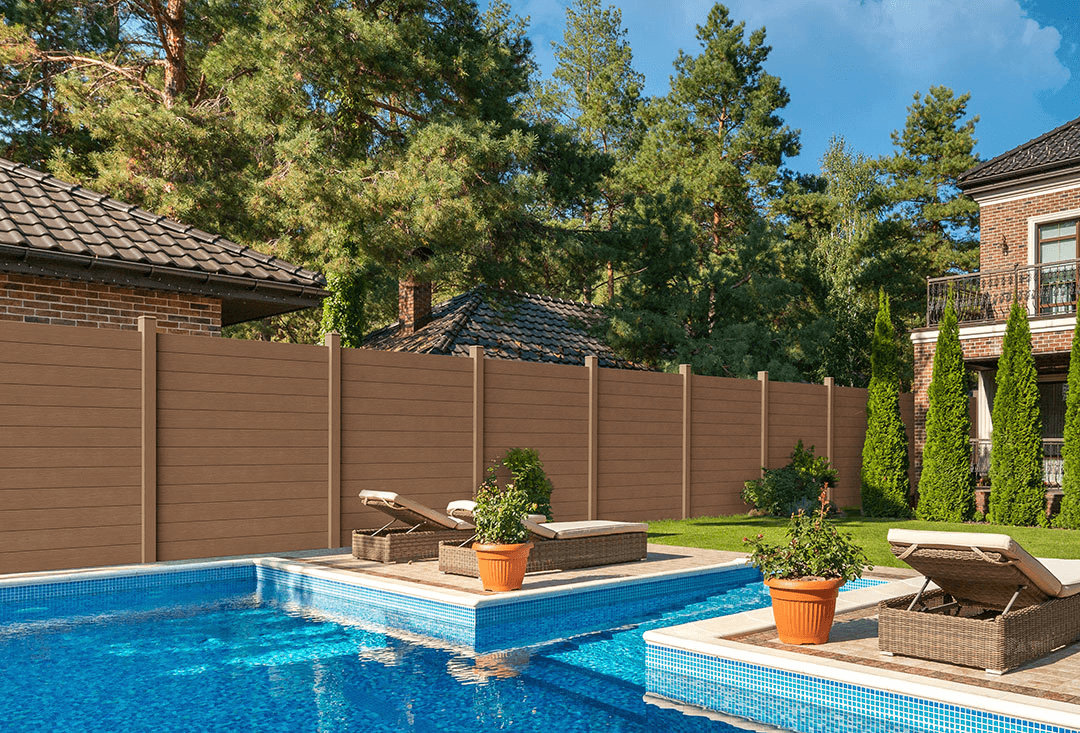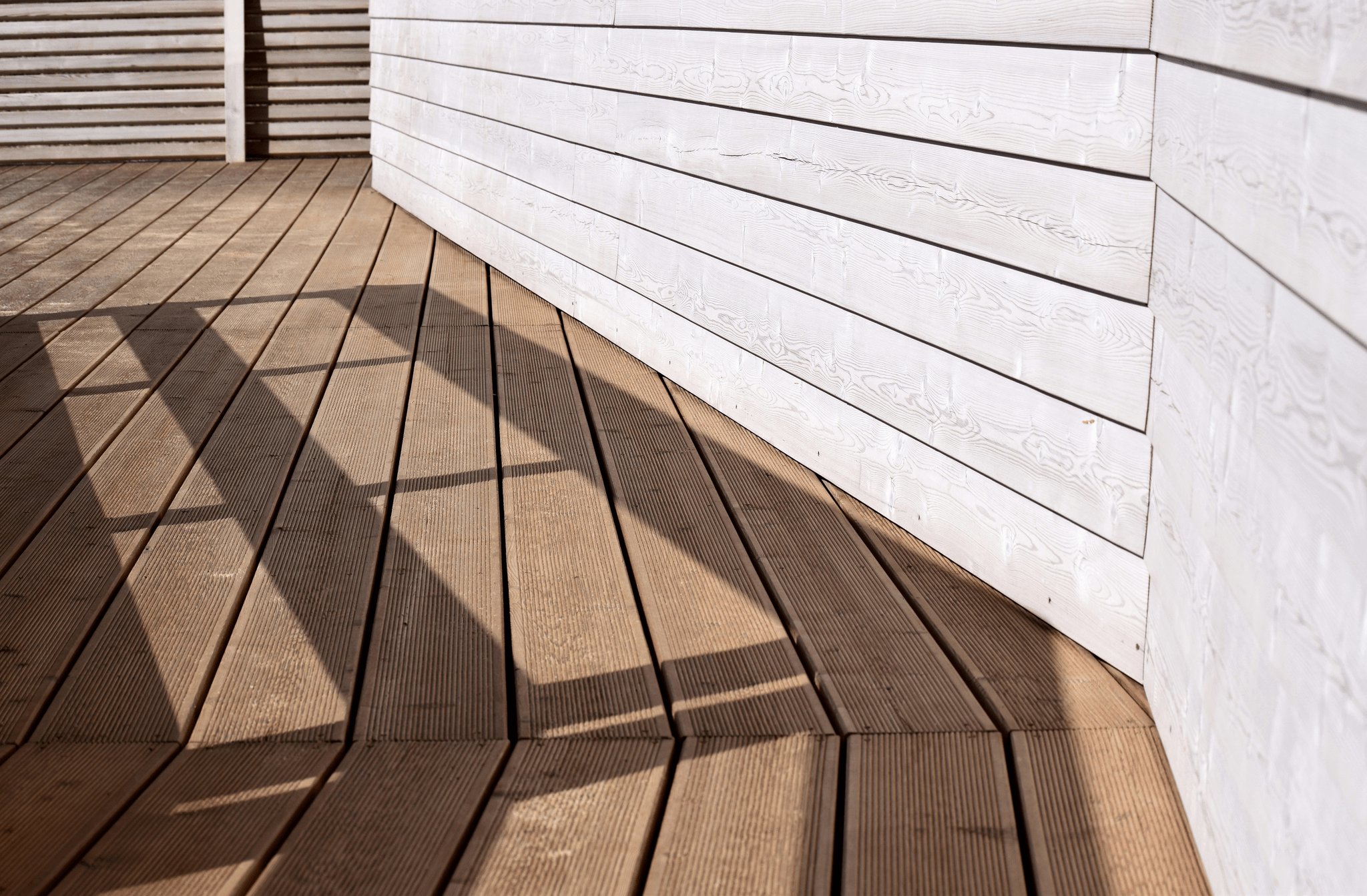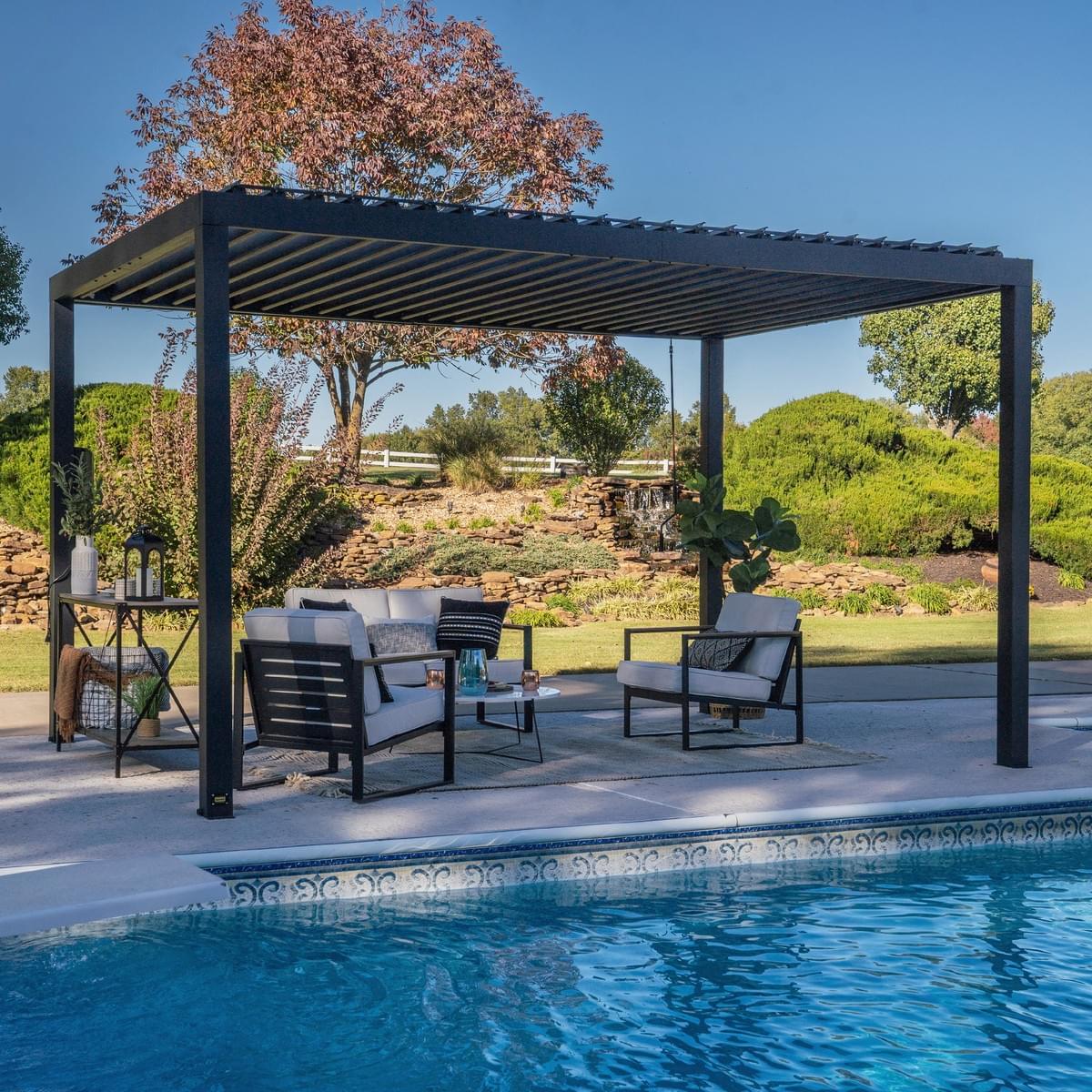Introduction

But what exactly are WPC wall panels? They are composite materials made from wood fibers and plastic, designed to offer an appealing alternative to traditional building solutions. With the increasing focus on sustainability and durability, understanding the properties of WPC is essential for homeowners and builders alike.
Understanding WPC Wall Panels
WPC, or Wood Plastic Composite, combines the best of both worlds: the natural beauty of wood with the resilience of plastic. These panels can be used in various applications, including decking, fencing, and even interior walls. As we delve deeper into this topic, one question arises: is WPC waterproof? This inquiry leads us to explore not just its waterproof capabilities but also its overall performance in real-world conditions.
The Appeal of Waterproof Features
Waterproof features are a significant selling point for many construction materials today. Homeowners want peace of mind knowing that their investments can withstand moisture without warping or degrading over time. This leads us to another important question: is WPC water resistant? While it may not be entirely waterproof in every scenario, its resistance to water damage makes it a popular choice for various environments.
How Water Resistance Works
Understanding how water resistance works in WPC products is crucial for making informed decisions about their use in construction projects. The combination of wood fibers and polymers creates a barrier that helps repel moisture while maintaining structural integrity. However, it's vital to address common concerns such as Is WPC 100% waterproof? and What are the disadvantages of WPC? as we navigate through this multifaceted material's capabilities.
What is WPC?

WPC, or Wood Plastic Composite, is a modern material that merges the best qualities of wood and plastic. This innovative combination creates a product that offers durability, versatility, and aesthetic appeal. But before diving into its uses and advantages, let’s break down what WPC truly is.
Definition and Composition
Wood Plastic Composite is manufactured by combining wood fibers with thermoplastics. This unique blend results in a material that mimics the appearance of natural wood while providing enhanced resistance to moisture and decay. When considering whether is WPC waterproof, it's essential to understand this composition; while it offers excellent water resistance, it may not be entirely waterproof under all conditions.
Common Uses in Construction
WPC has gained popularity across various construction applications due to its versatility and strength. It's commonly used for decking, fencing, railing systems, and even interior wall paneling. As you explore whether is WPC 100% waterproof, you'll find that many builders opt for WPC because it withstands outdoor elements better than traditional materials.
Advantages Over Traditional Materials
One of the standout benefits of WPC is its low maintenance requirement compared to wood products. Unlike traditional wood that may warp or rot over time, WPC resists these issues thanks to its composite nature. Additionally, when weighing which is better: WPC or PVC? many find that WPC provides a more natural look while still offering superior durability against weather conditions.
At Composite Decking Inc, we are passionate about transforming outdoor spaces with high-quality, sustainable decking solutions. With years of industry experience, our mission is to provide homeowners, builders, and designers with durable, low-maintenance composite materials that stand the test of time.
Is WPC Waterproof?

While many manufacturers tout their products as water-resistant, the distinction between waterproof and water-resistant can be critical for consumers. Understanding this difference is essential for making informed decisions about which materials to use in construction or renovation projects.
Distinguishing Between Waterproof and Water-Resistant
Waterproof materials are designed to prevent water penetration entirely, while water-resistant materials can withstand some exposure to moisture but may not hold up under prolonged contact with water. This distinction is crucial when considering whether WPC products will meet your needs in wet environments. While WPC is indeed water-resistant and performs well against moisture, it's important to note that it may not be 100% waterproof in every scenario.
Real-World Performance of WPC
In real-world applications, WPC has shown impressive performance when exposed to moisture and humidity. Many users report that their WPC installations have held up remarkably well against rain and spills, making them a popular choice for decks and outdoor spaces. However, scenarios involving standing water or continuous exposure may challenge its durability; hence, understanding is WPC waterproof becomes even more vital for specific projects.
Expert Insights on WPC's Waterproof Claims
Experts often clarify that while many brands promote their products as being highly resistant to water damage, it's essential to consider the conditions under which they were tested. Some professionals suggest looking into specific testing standards that measure how long a material can resist moisture before degradation occurs. Ultimately, while you might find claims regarding is WPC 100% waterproof, the consensus seems to lean towards it being a robust option for most applications but not completely impervious under all circumstances.
Is WPC 100% Waterproof?

When discussing the durability and performance of WPC (Wood Plastic Composite) materials, a common question arises: is WPC waterproof? The answer isn’t as straightforward as one might hope. While many manufacturers claim that their WPC products are water-resistant, it's crucial to understand the nuances that differentiate water resistance from true waterproofing.
Debunking Myths Around WPC
One prevalent myth is that all WPC products are fully waterproof. In reality, while WPC does offer significant protection against moisture, it isn't entirely impervious to water. Many consumers mistakenly believe that because a product is labeled as water-resistant, it can be submerged or exposed to standing water indefinitely without consequences; this simply isn't true for any material, including WPC.
Additionally, some people think that once a WPC panel is installed, it requires no further maintenance due to its supposed waterproof nature. However, neglecting regular upkeep can lead to issues like mold or mildew growth in areas where moisture accumulates over time. So when considering whether “is WPC waterproof,” it's essential to approach with realistic expectations and an understanding of proper care.
Testing Standards and Real-Life Scenarios
To determine how well WPC performs under various conditions, numerous testing standards have been established within the industry. These tests often involve exposing samples to water for extended periods and assessing any degradation or swelling that may occur. The results indicate that while many brands of WPC show impressive resistance to moisture, they still cannot withstand constant exposure like some other materials.
In real-life scenarios, homeowners have reported positive experiences using WPC in areas such as decks and patios where occasional splashes or rain are expected. However, placing these panels in consistently damp environments—like near pools or fountains—can lead to problems over time if not properly managed. Understanding these distinctions helps clarify the question: is WPC water resistant? Yes! But it's not entirely foolproof against all forms of moisture exposure.
Comparisons to Other Materials
When comparing “which is better: WPC or PVC?” in terms of waterproof capabilities, both materials have their strengths and weaknesses. PVC tends to be more resilient against prolonged exposure to water than most types of WPC due to its solid plastic composition; however, it may lack the natural aesthetic appeal that many homeowners seek from wood-like finishes offered by composite materials.
Moreover, traditional wood products fall short when pitted against either option in terms of longevity and maintenance requirements; they often warp or rot with excessive moisture exposure while requiring regular sealing treatments for protection. Therefore, if you’re pondering whether “is WPC 100% waterproof,” consider how it stacks up against other options available on the market before making your final decision.
Which is Better: WPC or PVC?

When considering the best material for your decking or wall panel needs, the debate between WPC (Wood Plastic Composite) and PVC (Polyvinyl Chloride) often arises. Each material has its unique strengths and weaknesses, making it essential to understand how they stack up against each other. Ultimately, the choice between WPC and PVC may depend on specific project requirements and personal preferences.
Strengths and Weaknesses of Each Material
WPC is celebrated for its natural wood-like appearance, which enhances aesthetic appeal while providing durability, making it a popular choice in outdoor applications. However, one of the questions that arise is is WPC waterproof? While WPC offers excellent water resistance due to its composite nature, it isn’t entirely immune to water damage over time if not properly maintained. On the other hand, PVC boasts superior waterproof characteristics; it’s completely impervious to moisture but can lack the warmth and texture associated with wood.
Conversely, when we explore What are the disadvantages of WPC?, we find that while it performs well in many scenarios, prolonged exposure to extreme weather can lead to fading or warping if not adequately cared for. In contrast, PVC does not suffer from these issues but may become slippery when wet—a significant consideration for safety in outdoor environments. Thus, both materials have their pros and cons that should be weighed carefully before making a decision.
Cost Considerations and Value
Cost plays a crucial role in determining whether WPC or PVC is better suited for your project needs. Generally speaking, WPC tends to be more affordable than PVC upfront; however, it's essential to consider long-term value as well. Although you might save money initially with WPC products—especially since “Is WPC 100% waterproof?” remains a topic of discussion—the maintenance costs could add up over time if regular upkeep is neglected.
PVC may carry a higher price tag initially but offers lower maintenance costs due to its durability and resistance to elements like moisture and pests. This means that while you might invest more upfront with PVC materials, you could save money down the line by avoiding repairs or replacements commonly associated with less resilient options like WPC. Therefore, analyzing both initial costs alongside potential long-term expenses will help clarify which option delivers better value for your specific situation.
Environmental Impact of WPC vs. PVC
When discussing environmental impact between these two materials—WPC generally emerges as the more sustainable option due to its composition of recycled wood fibers mixed with plastic waste products. Many manufacturers focus on eco-friendly practices during production; thus asking “Which is better: WPC or PVC?” often leads back toward considering sustainability as an essential factor in decision-making processes.
On the flip side, traditional PVC production involves harmful chemicals that can negatively impact both health and environment during manufacturing processes—raising concerns among eco-conscious consumers about their choices' sustainability implications over time. So when pondering “Is WPC water resistant?” versus “Is it worth investing in PVC?”, understanding their environmental footprints becomes crucial for those looking at sustainable options for decking solutions.
In conclusion, whether you opt for WPC or PVC hinges upon your priorities—be they aesthetics versus functionality or cost versus environmental responsibility—but either way Composite Decking Inc ensures you'll receive high-quality materials designed with longevity in mind!
What Are the Disadvantages of WPC?

While WPC (Wood Plastic Composite) wall panels have gained popularity for their appealing features, it’s essential to consider some of the disadvantages associated with these products. Understanding what are the disadvantages of WPC can help you make an informed choice for your projects. Despite their many advantages, potential buyers should be aware that WPC is not without its limitations.
Limitations of WPC Products
One significant limitation of WPC products is their susceptibility to scratching and denting, especially in high-traffic areas. Although they are designed to be durable, they may not withstand heavy impacts as well as traditional materials like solid wood or metal. Additionally, while many consumers ask, is WPC waterproof? it's important to note that while they are water-resistant, prolonged exposure to standing water can lead to degradation over time.
Another limitation lies in color fading and temperature sensitivity; WPC can absorb heat and become hot under direct sunlight. This means that if you're considering using it for decking or outdoor applications, you might want to think twice about those sunny spots in your garden. Furthermore, some users find that the variety in design options is limited compared to other materials like PVC; thus when asking which is better: WPC or PVC? design flexibility could tip the scale toward PVC for certain projects.
Maintenance and Care Recommendations
To ensure longevity and performance from your WPC products, proper maintenance is essential—though this isn't a deal-breaker! Regular cleaning with mild soap and water will help maintain their appearance and prevent mold growth since many people wonder if WPC is waterproof. While it does resist moisture better than wood, it still requires care to avoid potential issues related to water retention.
Another maintenance consideration involves checking for loose boards or fasteners periodically; while these products are built for durability, nothing lasts forever without a little TLC! Avoid using harsh chemicals or abrasive cleaners during upkeep as they may damage the surface finish over time. By following these recommendations diligently, you can maximize your investment in composite materials from companies like Composite Decking Inc.
Situations Where WPC May Not Excel
There are specific scenarios where one might question whether is WPC 100% waterproof? In environments prone to extreme weather conditions—such as heavy snowfall or flooding—WPC may not perform optimally compared to other materials designed explicitly for those elements. For instance, if you're planning a project near saltwater beaches where corrosion resistance is critical, traditional marine-grade materials might serve you better than standard composite options.
Additionally, if you're looking at applications requiring high structural integrity—like load-bearing beams—WPC may not be suitable due to its composition which limits its strength compared with solid wood or steel alternatives. In situations where aesthetics play a crucial role (think high-end designs), luxury woods might outperform standard composite finishes regarding visual appeal and prestige.
In conclusion, while there are numerous advantages associated with using Wood Plastic Composites (WPC), recognizing what are the disadvantages of WPC allows homeowners and builders alike to make educated decisions tailored specifically for their project needs! If you’re still on the fence about whether “which is better: WPC or PVC?” remember that both have unique strengths worth considering depending on your application!
Conclusion
In wrapping up our exploration of WPC wall panels, it’s clear that these materials offer a blend of aesthetics and functionality that is hard to beat. As we’ve seen, the versatility of WPC wall panels extends beyond simple waterproof capabilities; they can be adapted for various applications, enhancing both indoor and outdoor spaces. Whether you’re looking to create a cozy deck or a stylish accent wall, WPC provides an appealing solution that meets diverse design needs.
The Versatility of WPC Wall Panels
WPC wall panels are not just about being water-resistant; they also bring a unique flair to any project. Their ability to mimic the look of natural wood while being more durable makes them an attractive option for homeowners and builders alike. Plus, with the question is WPC waterproof? often on people's minds, it’s reassuring to know that these panels perform admirably in moisture-prone environments.
Making Informed Choices for Projects
When considering materials for your next project, understanding what are the disadvantages of WPC? is essential for making informed decisions. While WPC offers many advantages, such as low maintenance and aesthetic appeal, it’s crucial to weigh those against factors like potential limitations in extreme conditions or specific applications where traditional materials might excel. By asking is WPC 100% waterproof? and evaluating real-world performance data alongside expert opinions, you can choose what best suits your needs.
Why Composite Decking Inc Should Be Your Go-To
At Composite Decking Inc, we pride ourselves on transforming outdoor spaces with high-quality products designed to last. Our commitment is not only to provide durable solutions but also to educate our customers about their options—like comparing which is better: WPC or PVC? Our extensive industry experience ensures that whether you're concerned about cost considerations or environmental impact, we have the answers you need when pondering if is WPC water resistant?
